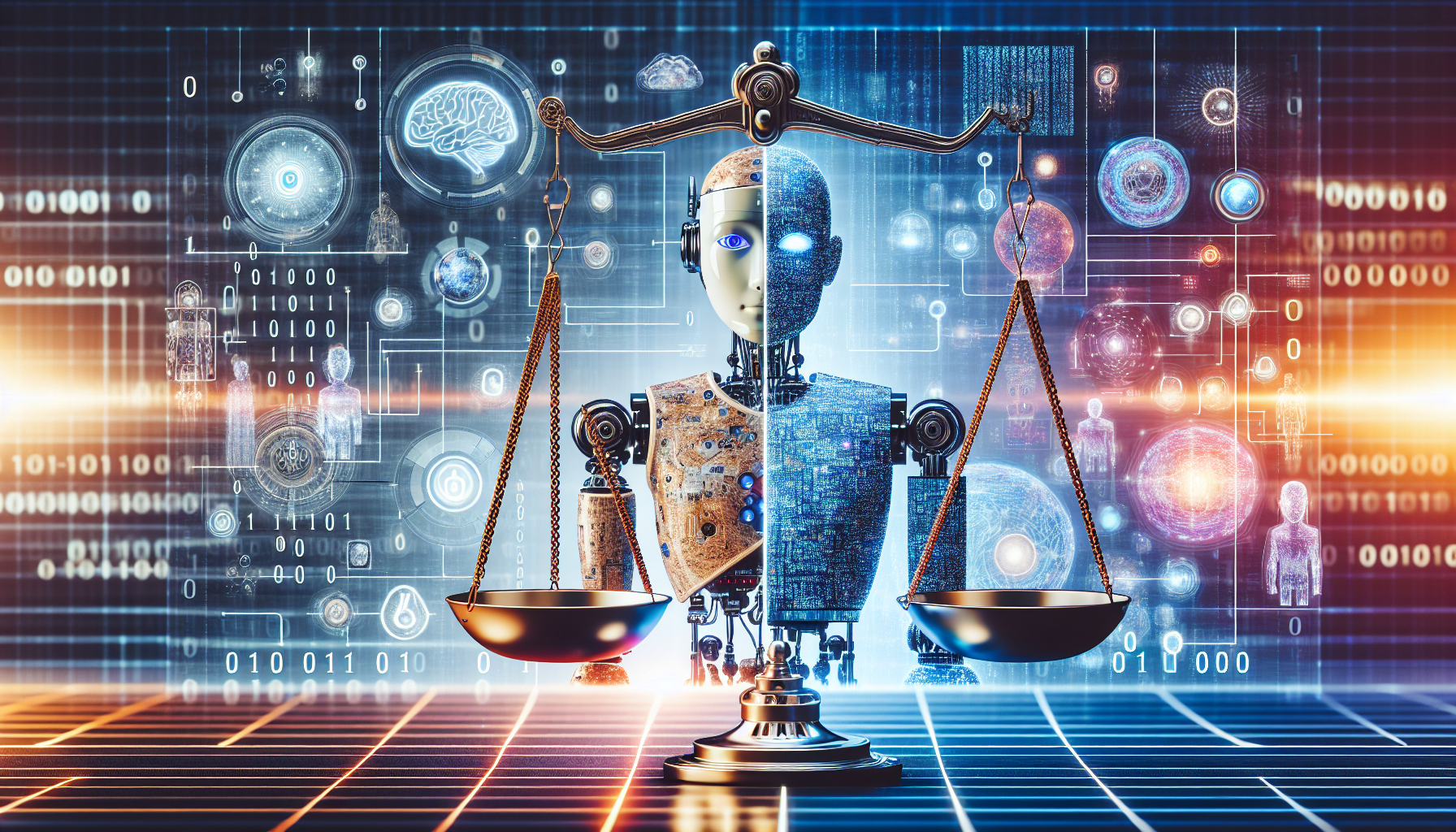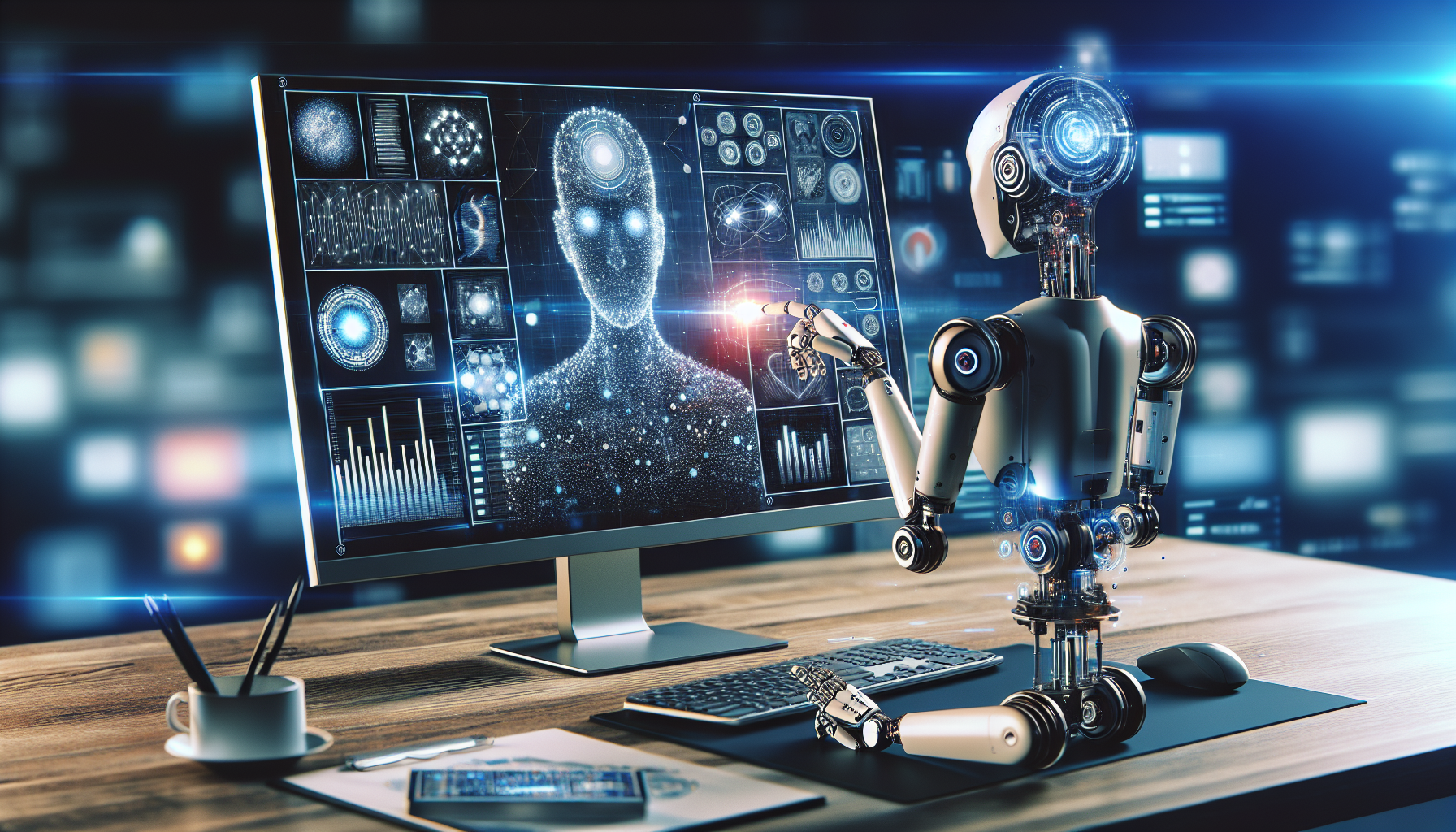
AI in the Legal Industry: How Robots Became the New Legal Eagles
October 24, 2025
Attention, legal professionals! Imagine a world where you spend more time sipping lattes and less time drowning in paperwork. Enter artificial intelligence—a superhero for the legal industry, swooping in to streamline processes and analyze cases faster than you can say "objection, your honor!" But how does it really stack up against traditional methods? Let's dive into this digital courtroom drama with a light-hearted comparative analysis, so you can decide if AI is the right partner for your legal dance.
First up, let's talk about the never-ending quest for efficiency. Picture this: a paralegal covered in sticky notes, frantically flipping through a sea of files, versus an AI-powered software that can sift through mountains of data while sipping on a virtual espresso. Who's your money on? AI shines in the grunt work department, turning what used to be a laborious task into a piece of cake—or in legal terms, a case closed. With AI, lawyers can focus on the thrilling aspects of their jobs, like arguing passionately in court or perfecting their dramatic pause.
But it's not just about speed; accuracy is key. AI systems can analyze vast amounts of documents and identify patterns that even the sharpest human eye might miss. It's like having Sherlock Holmes on retainer, minus the pipe and British accent (unless you program them in, of course). This ability to detect nuances and predict outcomes can give legal teams a competitive edge. Plus, AI doesn’t get tired, doesn’t take coffee breaks, and certainly doesn’t need a vacation in the Bahamas. Talk about dedication!
Now, before you start worrying about Skynet taking over your office, let's address the elephant—or should we say robot—in the room: the human touch. AI might be a whiz at crunching numbers and spotting trends, but it lacks the personal flair that makes a lawyer’s argument memorable. Can you imagine an AI making an impassioned plea to a jury? "Ladies and gentlemen, I urge you to consider the facts presented in my algorithm…" It just doesn’t have the same ring to it.
Moreover, clients often seek reassurance from a human face, especially when navigating the labyrinthine corridors of the legal system. AI can provide data-driven insights, but it can’t offer a comforting pat on the back or a knowing nod. This is where the human lawyer shines, bringing empathy and understanding to the table—or the courtroom bench, as it were.
Let's not forget about costs. Implementing AI solutions can be a hefty investment, akin to buying an entire library instead of just a book. While AI promises long-term savings by reducing labor costs and increasing efficiency, the initial outlay can be daunting. It's like buying a fancy espresso machine when you're used to instant coffee. Sure, it’s worth it in the long run, but it might sting a bit at first.
Yet, for those brave enough to embrace the future, AI offers opportunities beyond just analyzing documents. Consider AI’s role in contract review. Instead of a lawyer painstakingly reviewing each clause, AI can breeze through contracts, flagging potential issues faster than you can say "force majeure." It’s like having a legal assistant who’s addicted to speed-reading.
Let’s not overlook AI’s potential in predicting litigation outcomes. By analyzing historical case data, AI can provide probabilistic insights into how a case might unfold. It's akin to having a crystal ball, but one that runs on silicon chips instead of mystical energy. Lawyers can use these insights to strategize more effectively, potentially reducing the time and resources spent on unwinnable cases.
So, should we all be welcoming our new AI overlords with open arms, or should we tread cautiously on this digital path? The answer may lie in a balanced approach, where AI takes on the heavy lifting of data analysis and case management, while humans continue to bring strategy, empathy, and that irreplaceable human touch to the forefront of legal practice.
As AI continues to evolve, the legal industry faces an exciting era of transformation. The question remains: How will you integrate AI into your practice? Will you let the robots handle the routine, so you can focus on the riveting courtroom dramas? Or will you keep them as trusty sidekicks, enhancing but never replacing the human element that defines the legal field?
After all, in a world where AI can help us win cases and solve complex legal puzzles, perhaps the real challenge is finding the balance between machine efficiency and human intuition. Who knew the future of law could be this much fun?


